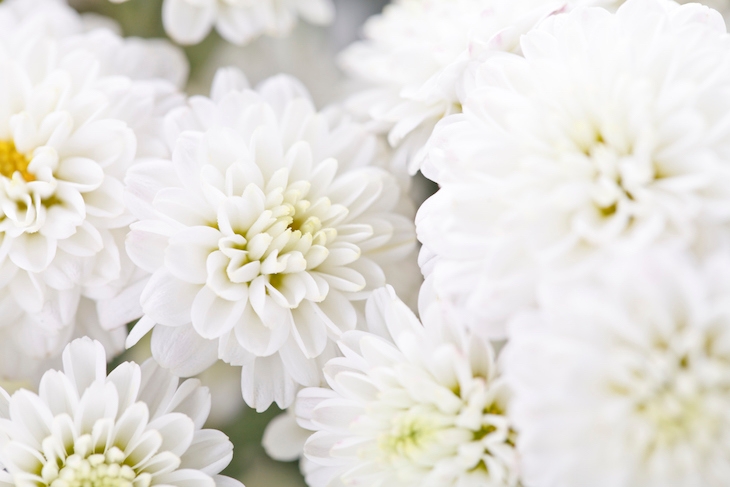Before the narrator of The White Book is born, her mother has another child; two months premature, the baby dies ‘less than two hours into life’. The narrator is born in the dead baby’s place. ‘This life,’ she writes, in a passage directly addressed to her sister, ‘needed only one of us to live it. If you had lived beyond those first few hours, I would not be living now.’ In small, breath-like fragments, The White Book, written while Han Kang was on a writers’ residency in Warsaw, feels its way through and tries to find meaning in both lives, the narrator’s and her sister’s — or, rather, the single life they have each inhabited, at and for different times.
Translated from the Korean by Deborah Smith, The White Book follows Kang’s Human Acts, a novel about the 1980 Gwangju massacre, and The Vegetarian, in which a woman rejects meat, for which Kang and Smith won the 2016 Man Booker International Prize. The White Book — slim, fragmented, interspersed with black and white photographs of a performance in which Kang hunches and crouches over pieces of white-grey material and foods — is quieter and subtler; it is meditative and slow and deeply personal.
This is both an autobiographical book and a work of fiction. In a foreign city, haunted by ghosts from its own tragic past, Kang imagines her sister, a spirit, ‘hovering at [her] forehead’, walking through Warsaw in her place, seeing and experiencing the things Kang comes into contact with. (In Warsaw — a city that was destroyed in 1944 and reconstructed — Kang also sees reflected her sister’s life, its destruction and its reconstruction into a life for herself.)
Kang shows her sister objects significant to their shared life. Beginning with the swaddling bands that wrapped her sister’s still-breathing body, and then became her shroud, Kang moves through a list of white things to find structure in her sister’s story. There are short meditations on salt, rice, breast milk, white hair, sugar cubes and — most movingly — the white clothes that the narrator, her brother and her sister-in-law make as an offering to the spirit of her mother. (‘As soon as I held my brother’s lighter to the sleeve, a thread of blue-tinged smoke spiralled up. After white clothes dissolve into the air this way, a spirit will wear them’).
Through such meditations, veins of story emerge. These describe what might have been, had the narrator’s sister survived — ‘I think of her living to drink that milk… I think of her being weaned and then raised on rice porridge, growing up, becoming a woman, making it through every crisis’ — and, concurrently, outlines of the narrator’s life lived so far. A strange feeling of conflict arises from reading this book. While we mourn the potential of one life passed, we are made continuously aware of the fact that, had the sister lived, the narrator would not have been born.
There are two words for white in Korean, hwin and hayan. Kang chooses hwin for the title of this book. ‘Hayan indicates white as an ordinary colour,’ she explains in an interview with her publisher, ‘but in hwin there might be a certain sadness, the colour of fate.’ While there is certainly sadness in this book, there is also a sense of gratitude, of acceptance and of peace. In instances of death, we find life, too — Kang’s own and, part way through, the birth also of her son, the twinge of his existence felt over a bowl of boiled rice.
This is a breathtakingly beautiful, compassionate, open, moving book. It is immensely special. In its pages are evidence of a true genius.






Comments